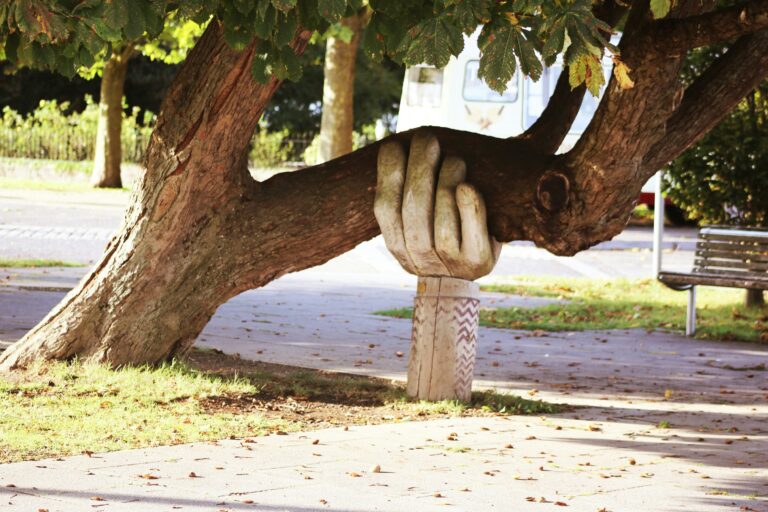Valerie Ling, clinical psychologist, Director and founder of the Centre for Effective Serving with a special interest in prevention and treatment of burnout, spoke at the August 2024 Spotlight Session on ‘Burnout’. This article, written by Guan Un, summarises her presentation.
You can learn more about Spotlight Sessions and upcoming events from the Mental Health and Pastoral Care Institute here.
Burnout
Valerie began her presentation by sharing that of all the clients she sees, the two main concerns that emerge are loneliness and exhaustion.
Why are we lonely and exhausted? Because the age we live in has eaten away at many of the ingredients that help keep us healthy in the various contexts of our lives.
This is what makes us the ‘burnout generation’. Compared to a time when burnout seemed to be confined to certain groups—frontline workers, high level executives—now, burnout is all around us: parent burnout, carer burnout, student burnout.
Part of the problem is actually what seemed to be a cure for loneliness: social media and all its predecessors. These features of contemporary life give us the expectation that we should always be online and connected, always available, and always informed. Online, there are seemingly infinite possibilities, and yet our bodies remain, stubbornly, finite.
Impact On Our Brain
 Valerie then turned to how burnout affects our brain, in particular, the frontal lobe. This is the area of the brain involved in planning and decision-making. And just like any other part of our body, when it’s overused, it wears out.
Valerie then turned to how burnout affects our brain, in particular, the frontal lobe. This is the area of the brain involved in planning and decision-making. And just like any other part of our body, when it’s overused, it wears out.
Our brains were designed to have all its various parts involved and working together. So, when we are constantly in decision-making mode (‘analysis paralysis’), it can create a stress response. Our body starts to believe that we’re under threat, which can trigger the fight-or-flight response.
Valerie defined burnout as ‘prolonged stress which overwhelms coping mechanisms, where work loses meaning and work stress outweighs support and intrinsic motivation’, or more simply, ‘a relationship with the work that we do that is out of kilter’.
This is characterised by three main elements:
- Emotional exhaustion – feeling drained
- Cynicism and depersonalisation – withdrawal from people
- Low personal accomplishment
The effects of burnout manifest in various ways. For example, at work, you might make mistakes, feel physically sick, or dread of being at work. In a carer situation, you might feel guilt, or rage, or resentment, or overwhelming sadness.
Stress in itself is okay—it’s our bodies trying to tell us that we need to take action. But too much stress for too long will result in burnout. Thus, it’s important to find ways to regulate: to find ways for body and brain to calm down.
A Case Study: Carers' Burnout

Valerie noted that we usually think of this category in reference to those caring for the aged or a family member. But it’s broader than that: it could be a child with special needs, or who doesn’t sleep, or a family member that is difficult to deal with.
These contexts often result in too much stress for too long. Many factors are at play in contributing to that stress, so there are a myriad of reasons why we might burnout:
- Neglecting self-care by focusing entirely on others at the expense of your well-being
- Role confusion – struggling to balance caregiving with other roles
- Unrealistic expectations – overestimating the positive impact of your caregiving
- Lack of control – such as limited resources or skills to manage care
- Overwhelming responsibilities – taking on too much without help
- Unawareness – not recognising burnout when it occurs
So, what can we do? The starting point for Christians dealing with burnout, carers or otherwise, would be to remember that God is sovereign over all our circumstances. Yes, there are things we can do. But it is his provision that ultimately makes the difference.
Once we have that foundation, we can then take steps to assist our recovery. And it’s not selfish to take the time you need to think about what you need.
Resources We Can Draw Upon
Valerie provided seven ‘R’ suggestions:
- Rest (mental) – The best way to mentally rest is to know which activities deplete your brain, and to take breaks, especially near bedtime. For example, if checking emails takes up brainpower, don’t use your computer late at night.
- Rest (physical) – In the multitude of opportunities, tasks and activities available to us, just because you can fit it in, doesn’t mean that you have to. Prioritise things that are fun—physical rest does not just mean sleep!
- Reflect – Valerie recommended an app called Stoic (see resources), or any way that helps you journal or reflect in a way that doesn’t lead to analysis paralysis.
- Replenish – Be conscious of the nutritional value of the food you are eating – are you eating all the colours of the rainbow? Are you moving your body? It’s hard to be happy when you’re sitting for 10 hours at a time. And do you need to do anything to make your sleep more restorative?
- Restore – Practices such as prayer and scriptural meditation can be grounding and restorative for those who belong to a faith tradition.
- Resource – Many who experience burnout tend to be perfectionistic and struggle to say ‘No’ to requests. So, it helps to understand that everything doesn’t have to be perfect, and saying “I’ll do what I can”. Or it might mean saying ‘No’ to what someone’s asked, and realising that won’t be catastrophic.
- Reconnect – Burnout can be a lonely experience. It’s important to have friendships and relationships that fill up your tank, especially if you’re regularly giving out to others. Valerie believes that if you are deep in a carer role, then you need at least five people caring for you.

Mindfulness
The research has found that mindfulness is a great help in preventing and recovering from burnout. The benefits of mindfulness flow from the earlier comments about how our brains function. Mindfulness gives your brain time to rest from decision-making, and allows different parts of the brain to take a turn, such as those attuned to the information coming to us through our senses.
Some of the things Valerie does, both in terms of mindfulness and rest, include using the Stoic app, putting on nature sounds or calm music at home, choosing music rather than a thinking-intense podcast in the car, mindful walks, sudoku and puzzles. And during many of these she will purposefully put her phone aside.
Tips For Carers
- Seek support – it’s okay to talk to someone (who you know will listen) and share your feelings about what is happening.
- Accept your feelings – it’s normal to have negative feelings and grief about what is happening. But be open to acknowledging the good feelings that come your way also.
- Set realistic goals – understand that you are finite, and won’t be able to do everything by yourself. This may involve reaching out for help when you’re overwhelmed.
Suggested Resources
Valerie is the Clinical Director and founder of the Centre for Effective Serving.
Mindfulness
Helplines & Informative Websites
- Beyond Blue (1300-22-4636)
- Black Dog Institute
- Headspace (1800-650-890)
- Kids Helpline (1800-55-1800)
- Lifeline Australia (13-11-14)
- ReachOut Australia
- SANE (1800-187-263)




